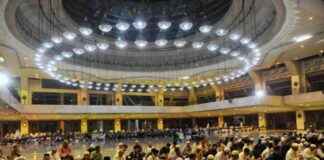Sleep Tourism: A Glimpse into the Future of Travel in 2025
In a world where the hustle and bustle of modern life often leaves us yearning for a moment of respite, the concept of sleep tourism is poised to revolutionize the way we travel. Defined as a form of tourism that prioritizes quality rest for rejuvenating energy and mental health, sleep tourism offers a unique opportunity for travelers to indulge in relaxation, rather than the typical adventure and exploration associated with vacations. As we navigate the demands of an ever-evolving society, the allure of escaping into a cocoon of tranquility is becoming increasingly appealing.
Psychotherapist Heather Darwall-Smith, an expert in sleep therapy, sheds light on the profound appeal of sleep tourism, stating, “We are constantly seeking a reprieve from the endless demands of modern life. Our brains and bodies often find themselves in a state of chronic stress, juggling multiple roles and responsibilities without adequate time for recovery.” This sentiment resonates with the growing number of individuals seeking solace in the promise of restful sleep amid the chaos of daily life.
The landscape of sleep tourism is rapidly expanding, with many hotels and accommodations now offering specialized facilities to support quality rest. From light-blocking curtains and sleep hypnosis to soundproof rooms and luxury linens, these establishments are dedicated to providing guests with an immersive relaxation experience. Some even offer innovative sleep monitoring programs, such as guided meditation, video polysomnography, and sleep pattern training, to enhance the quality of rest and promote personal insights.
For instance, the Conrad Hotel in Bali features the “Sway Sleep Therapy” option, allowing guests to unwind in a cocoon-shaped hammock for an hour of blissful relaxation. Meanwhile, the Hilton network prioritizes amenities like Power Down, which includes temperature-regulated mattresses and bedding, cozy socks, and state-of-the-art soundproofing technology. These offerings exemplify the commitment of the hospitality industry to cater to the evolving needs of travelers seeking a deeper, more restorative travel experience.
Beyond the realm of relaxation, sleep tourism offers a myriad of benefits for both physical and mental well-being. Research indicates that dedicating time to improve sleep quality and address underlying sleep issues is a worthwhile investment. A recent study in 2024 revealed that individuals with poor sleep duration or quality exhibit flatter diurnal cortisol slopes, indicating irregular stress response systems. By honing in on sleep patterns and utilizing new techniques like meditation and optimizing sleep environments, participants can enhance their overall sleep quality and transform their lifestyles for the better.
Moreover, the personalized insights gained from sleep monitoring during these programs can serve as a roadmap for integrating healthier habits into daily life. Whether it’s adopting meditation practices tailored to individual needs or refining sleep hygiene routines, sleep tourism offers a unique opportunity for travelers to embark on a journey of self-discovery and holistic wellness.
As we look ahead to the future of travel in 2025, the rise of sleep tourism signifies a shift towards a more mindful and rejuvenating approach to exploration. In a world where time is a precious commodity, the value of quality rest cannot be overstated. So, why not embark on a journey that not only takes you to new destinations but also allows you to rediscover the transformative power of a good night’s sleep?














